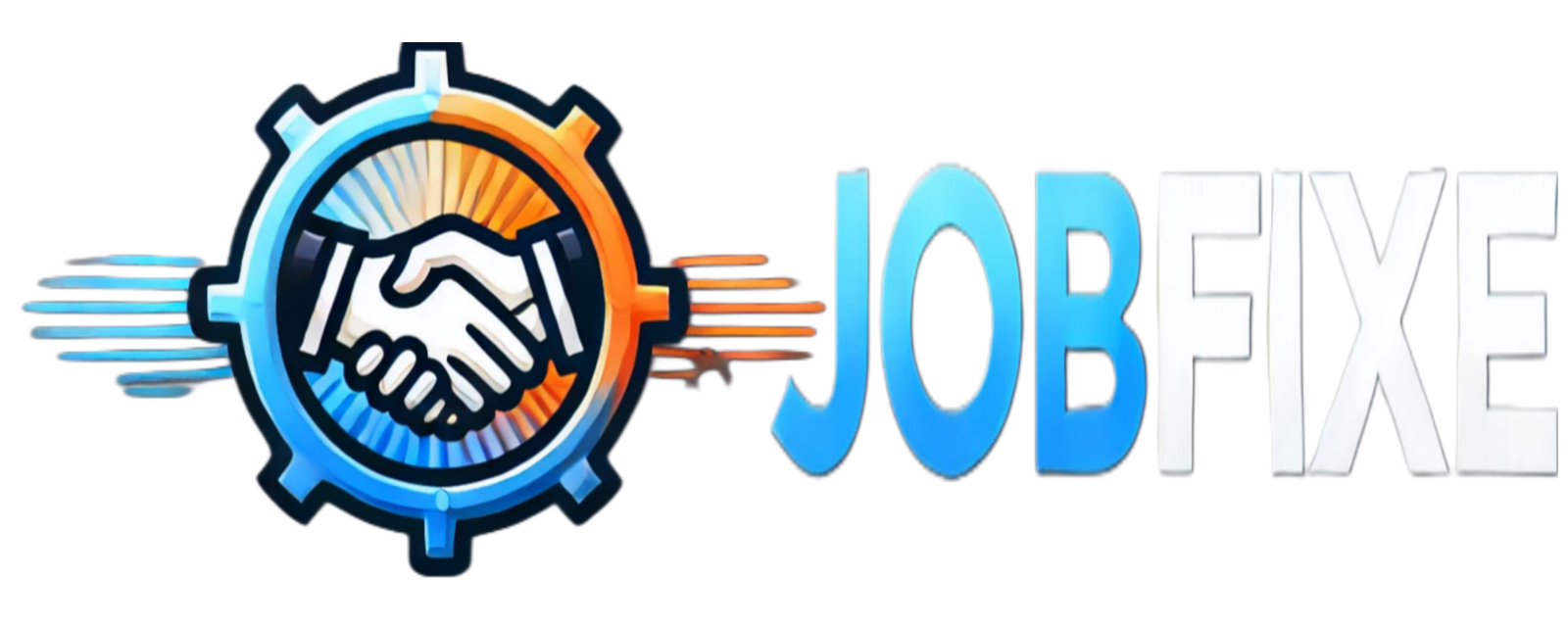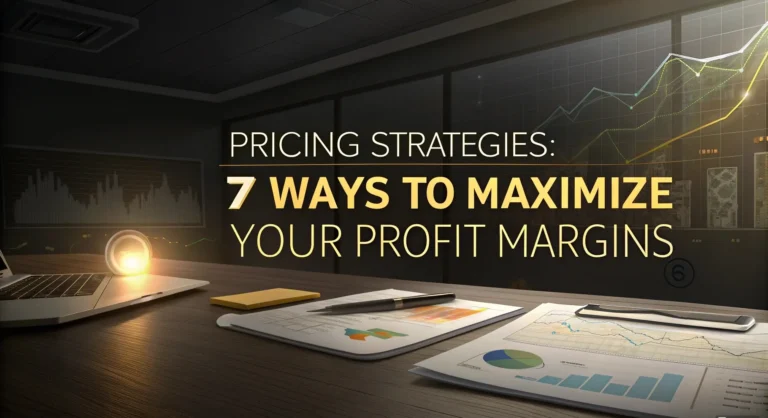How to Maximize Your 2025 Salary Guide
Table of Contents
Expert Strategies for Career Growth and Compensation
Introduction
Are you one of the 73% of professionals who feel underpaid in their current role? Or perhaps you’re wondering if your compensation package truly reflects your market value as we approach 2025? In today’s rapidly evolving job market, understanding and maximizing your earning potential has never been more critical. This comprehensive salary guide will equip you with data-driven strategies and expert insights to navigate compensation negotiations with confidence in 2025.
The landscape of work is shifting dramatically, with technological advancements, economic fluctuations, and changing employer priorities creating both challenges and opportunities for career growth. This salary guide isn’t just about numbers—it’s about positioning yourself strategically to capitalize on these shifts and secure the compensation package you deserve.
Whether you’re seeking a promotion, planning a career pivot, or preparing for your annual review, the following roadmap will help you transform your approach to salary discussions and career advancement in 2025 and beyond.
Job Requirements List
To maximize your earning potential in 2025, you’ll need to develop specific skills and qualifications that employers value most. According to current market trends, these requirements have evolved significantly from previous years:
Essential Qualifications:
- Technical Proficiency: Develop skills in AI tools, data analysis, and relevant software platforms for your industry
- Digital Communication: Demonstrate excellence in virtual collaboration and remote presentation abilities
- Adaptability: Show examples of how you’ve successfully navigated change and uncertainty
- Problem-Solving: Highlight your analytical thinking and creative solution development
- Industry-Specific Expertise: Maintain deep knowledge of your field’s evolving trends and practices
Alternative Qualifications Employers Accept:
- Equivalent Experience: Many employers now value relevant project work over formal degrees
- Transferable Skills: Highlight abilities from other industries that apply to your target role
- Portfolio Demonstrations: Showcase tangible results through case studies or work samples
- Continuous Learning: Certifications or courses showing commitment to professional development
- Cross-Functional Experience: Demonstrate how exposure to different business areas enhances your contribution
Remember that employers increasingly value the ability to adapt and grow over static qualifications. According to recent hiring trends, 68% of employers now prioritize demonstrated skills over formal credentials when evaluating candidates for higher-paying positions careerist.com.
Application Timeline
Understanding the rhythm of hiring processes can give you a strategic advantage in timing your salary negotiations. Here’s what to expect in the 2025 job market:
Preparation Phase: 2-4 Weeks
- Research current salary guides and compensation trends (1 week)
- Update resume and professional profiles with high-value accomplishments (1 week)
- Develop your personalized value proposition and negotiation strategy (1-2 weeks)
Application Process: 3-6 Weeks
- Initial application review (1-2 weeks)
- Screening and preliminary interviews (1-2 weeks)
- Advanced interviews and assessments (1-2 weeks)
Negotiation Phase: 1-3 Weeks
- Initial offer presentation (2-3 days)
- Counter-offer and discussion period (1-2 weeks)
- Final agreement and acceptance (3-5 days)
Total Timeline: 6-13 weeks from preparation to accepted offer
Interestingly, data shows that candidates who properly prepare using a comprehensive salary guide typically secure offers 15% higher than those who enter negotiations without preparation. Additionally, the hiring timeline has compressed by approximately 20% compared to 2023, making it essential to have your strategy ready before opportunities arise.
Step-by-Step Application Process
Step 1: Market Value Assessment
Before entering any compensation discussion, you must establish your true market value based on current salary guide data. This foundation is critical for confident negotiation.
- Consult multiple salary guides specific to your industry, role, and location
- Use salary calculators from reputable sources to establish baseline expectations
- Connect with industry peers through professional networks to validate compensation ranges
- Factor in your unique skill set, experience level, and specialized knowledge
- Document recent achievements with quantifiable metrics to support your value case
Early-career professionals should focus on demonstrating potential and growth trajectory, while mid-career individuals should highlight specialized expertise and leadership capabilities.
Step 2: Strategic Resume Optimization
Your resume must be tailored to showcase the value that justifies your desired compensation level.
- Highlight achievements with measurable outcomes (increased revenue by 18%, reduced costs by 25%)
- Align your experience with high-value skills mentioned in job descriptions
- Incorporate industry keywords and technical competencies relevant to premium positions
- Include a professional summary that positions you at your target compensation level
- Add relevant certifications and advanced training that justify higher compensation
Senior professionals should emphasize strategic leadership and organizational impact, while technical specialists should detail specialized capabilities that command premium compensation.
Step 3: Interview Preparation for Compensation Discussions
Prepare specifically for questions and discussions related to compensation.
- Develop concise talking points about your value proposition
- Prepare specific examples that demonstrate your impact and justify higher compensation
- Research the company’s compensation philosophy and recent financial performance
- Practice discussing compensation confidently using data from your salary guide research
- Prepare thoughtful questions about the complete compensation package beyond base salary
Entry-level candidates should focus on growth potential and learning agility, while experienced hires should emphasize immediate impact and specialized expertise.
Step 4: Negotiation Strategy Development
Create a customized negotiation strategy based on your research and the specific opportunity.
- Establish your ideal target, acceptable range, and walk-away number
- Identify non-salary benefits that have high personal value (flexibility, development opportunities)
- Prepare specific justifications for your compensation requirements
- Develop responses for common objections to your salary expectations
- Plan your negotiation timing to maximize leverage (after demonstrating value, when they’ve invested in you)
Professionals in high-demand fields should negotiate more aggressively, while those in competitive markets might focus on performance-based compensation structures.
Step 5: Post-Negotiation Follow-Through
Securing a great offer is just the beginning. Plan for continued compensation growth.
- Document your agreement comprehensively (get everything in writing)
- Establish clear expectations for performance reviews and compensation adjustments
- Create a 90-day plan to demonstrate immediate value
- Schedule regular check-ins to discuss your contributions and progress
- Begin tracking accomplishments for your next compensation discussion
Professionals at all career stages should maintain documentation of achievements and regularly revisit market salary guides to ensure their compensation remains competitive.
Salary Information
Understanding comprehensive salary data is crucial for effective negotiation. The following information, compiled from multiple 2025 salary guides, provides a detailed view of current compensation trends:
Base Salary Ranges by Experience Level
| Experience Level | Entry-Level | Mid-Level | Senior-Level | Executive |
|---|---|---|---|---|
| Technology | $75-95K | $110-150K | $160-210K | $220K+ |
| Finance | $65-85K | $90-130K | $140-190K | $200K+ |
| Marketing | $55-75K | $80-120K | $130-175K | $180K+ |
| Healthcare | $60-80K | $85-125K | $135-185K | $190K+ |
| Manufacturing | $50-70K | $75-115K | $125-170K | $175K+ |
Regional Salary Variations (Percentage Adjustment)
- Northeast: +15-20%
- West Coast: +18-25%
- Midwest: -5-10%
- South: -3-8%
- Remote: Varies by employer policy, typically -5% to +10% depending on company approach
Total Compensation Considerations
Beyond base salary, comprehensive salary guide analysis shows these components significantly impact total compensation:
- Performance Bonuses: Range from 5-30% of base salary depending on role and level
- Equity Compensation: Now offered at earlier career stages, not just executive positions
- Remote Work Stipends: $2,000-$5,000 annually becoming increasingly common
- Learning & Development Allowances: $1,500-$3,500 annually for professional growth
- Health Benefits: Valued at $8,000-$25,000 annually depending on coverage
According to nucamp.co, “Many companies are now offering competitive packages that include equity and performance bonuses on top of the base salary, making it an even more attractive career choice for ambitious tech professionals.”
Fastest-Growing Compensation Areas
Recent salary guide data indicates these specializations are seeing the most rapid compensation growth:
- AI Ethics & Governance: 22-28% year-over-year increase
- Sustainability Leadership: 18-24% increase
- Cybersecurity: 15-22% increase
- Digital Transformation: 14-20% increase
- Remote Team Management: 12-18% increase
Alternative Career Paths
In 2025’s dynamic job market, exploring alternative career paths can significantly increase your compensation potential. Consider these strategic pivots that leverage your existing skills:
Strategic Lateral Moves
- Industry Crossover: Apply your functional expertise in higher-paying sectors (e.g., marketing professionals moving to tech or healthcare)
- Specialization Shift: Focus on high-demand niches within your field (e.g., general HR to compensation specialist)
- Consulting Transition: Convert employment expertise into advisory services with premium rates
- Product to Service Transition: Move between complementary areas for broader experience and higher compensation
- Digital Transformation Roles: Apply traditional skills to digital contexts for premium compensation
Emerging High-Compensation Roles
These emerging positions often offer superior compensation compared to traditional career paths:
- AI Implementation Specialist: Bridge between technical AI capabilities and business applications
- Remote Workforce Experience Designer: Create effective virtual working environments and practices
- Sustainability Integration Manager: Implement ESG initiatives across business functions
- Digital Ethics Compliance Officer: Ensure ethical use of data and technology
- Human-Machine Collaboration Coordinator: Optimize workflows between employees and automated systems
Skill Enhancement for Career Pivots
To successfully transition to higher-paying paths, focus on developing these bridging skills:
- Data Interpretation: Ability to translate analytics into business insights
- Digital Collaboration: Mastery of virtual teamwork and project management
- Learning Agility: Demonstrated capacity to quickly master new domains
- Systems Thinking: Understanding complex interconnections between business functions
- Change Leadership: Guiding teams through transformation and uncertainty
According to workera.ai, “By [focusing on how your job is changing], you’ll become the expert in how your job is changing and gain valuable insights into what the new version of your role entails.”
Interview Preparation Suggestions
Mastering the interview process is essential for securing premium compensation. According to the latest salary guide research, candidates who demonstrate exceptional interview preparation can command offers 12-18% higher than equally qualified but less prepared peers.
Research-Driven Preparation
- Company Financial Analysis: Review quarterly reports to understand compensation capacity
- Leadership Study: Research interviewers’ backgrounds and career paths for connection points
- Value Proposition Alignment: Map your capabilities to the organization’s strategic priorities
- Competitor Intelligence: Understand how the company positions against competition
- Future Vision Alignment: Connect your career goals to the company’s growth trajectory
High-Impact Interview Techniques
- Situation-Action-Result Stories: Prepare 5-7 compelling achievement narratives with quantifiable outcomes
- Value Visualization: Help interviewers envision your specific impact on their organization
- Strategic Questioning: Develop thoughtful questions that demonstrate business acumen
- Tailored Communication: Adjust your language to match the company’s culture and terminology
- Digital Portfolio Presentation: Create a concise visual showcase of your most relevant work
Virtual Interview Excellence
With remote interviews remaining common in 2025, master these digital presentation skills:
- Technical Environment Optimization: Ensure perfect audio, lighting, and background
- Digital Engagement Techniques: Maintain connection despite the virtual barrier
- Visual Aid Integration: Strategically share screens or materials to enhance your narrative
- Non-Verbal Communication: Deliberately manage eye contact, posture, and gestures
- Follow-up Content Strategy: Prepare valuable resources to share after the interview
As highlighted in a recent leveluphcs.com report, “With rising job dissatisfaction, more employees are seeking new roles due to low pay, burnout, and feeling undervalued. To retain talent, companies should prioritize competitive pay, meaningful work, and a supportive culture.”
Common Application Mistakes to Avoid
Even highly qualified candidates can undermine their compensation potential through these frequently observed mistakes. Recent salary guide analysis reveals these errors can reduce offers by 10-25%:
Preparation Phase Mistakes
- Generic Value Proposition: Failing to customize your narrative to each opportunity
- Underresearching Compensation Range: Entering discussions without accurate market data
- Neglecting Digital Presence: Overlooking inconsistencies between resume and online profiles
- Passive Application Strategy: Relying solely on job boards rather than leveraging networks
- Compensation History Disclosure: Volunteering previous salary information that anchors negotiations too low
Application Submission Errors
- Qualification Over-Filtering: Self-selecting out of roles where you meet 70-80% of requirements
- Achievement Generalization: Providing vague accomplishments without measurable impacts
- Keyword Misalignment: Failing to align resume language with job description terminology
- Experience Underselling: Not translating previous experience into relevant capabilities
- Application Timing: Submitting at low-visibility times (Friday afternoons, holiday periods)
Interview Stage Missteps
- Premature Salary Discussion: Introducing compensation before establishing your value
- Preparation Signals: Failing to demonstrate comprehensive research about the opportunity
- Inflexible Positioning: Presenting overly rigid requirements rather than areas for discussion
- Aspiration Limitation: Setting targets based on incremental improvements rather than market value
- Non-Salary Benefit Oversight: Focusing exclusively on base salary rather than total compensation
Negotiation Phase Errors
- Single-Offer Strategy: Failing to develop multiple opportunities for negotiating leverage
- First-Number Offering: Providing a specific compensation requirement before the employer does
- Emotional Reasoning: Using personal circumstances rather than market value as justification
- Digital Communication Misuse: Conducting sensitive negotiations through improper channels
- Incomplete Documentation: Accepting verbal agreements without comprehensive written confirmation
According to hays.com, “With ongoing technology and worker expectations, one thing is certain, the world of work is changing,” making it essential to avoid these common pitfalls in the 2025 job market.
Career Growth Tips
Securing optimal compensation is not a one-time event but an ongoing career management process. These strategies, derived from comprehensive salary guide analysis, will help you maintain an upward compensation trajectory:
Strategic Value Enhancement
- Value Documentation System: Implement a weekly accomplishment tracking methodology
- Visibility Planning: Create deliberate strategies for showcasing your contributions
- Skill Gap Analysis: Regularly audit your capabilities against premium compensation roles
- Professional Brand Development: Cultivate a recognized expertise that commands premium rates
- Internal Advocacy Network: Build relationships with decision-makers who influence compensation
Continuous Market Alignment
- Quarterly Market Assessment: Regularly review salary guide data to benchmark your compensation
- Role Evolution Monitoring: Track how your position is changing in terms of responsibilities and value
- Industry Trend Analysis: Identify emerging high-value capabilities before they become mainstream
- Compensation Structure Changes: Stay informed about shifts in how companies are paying (base vs. variable, equity components, etc.)
- Company Financial Alignment: Connect your compensation discussions to organizational performance
Professional Development Optimization
- High-ROI Skill Acquisition: Prioritize learning that directly impacts compensation potential
- Strategic Certification Planning: Select credentials with proven correlations to higher pay
- Leadership Capability Development: Focus on management skills that qualify you for premium positions
- Cross-Functional Exposure: Gain experience in adjacent areas that enhance your market value
- Executive Visibility Projects: Seek opportunities to demonstrate value to senior leadership
Long-Term Compensation Maximization
- Portfolio Career Planning: Design a career path that builds transferable value across positions
- Negotiation Skill Development: Continuously improve your ability to advocate for your worth
- Promotion Timing Strategy: Identify optimal windows for advancement discussions
- External Opportunity Evaluation: Regularly assess market options even when satisfied
- Compensation Package Restructuring: Periodically reassess the optimal mix of salary and benefits
As emphasized by careerist.com, “Go ahead, plug your numbers into the Future Salary Calculator, and start planning your next big career move!” This proactive approach to career development is essential for maximizing your earnings potential.
Conclusion
Navigating the 2025 job market requires a strategic, data-driven approach to secure optimal compensation. By understanding current salary guide trends, developing in-demand skills, mastering negotiation techniques, and consistently documenting your value, you’ll position yourself for maximum earning potential. Remember that preparation, confidence, and market awareness are your greatest allies in compensation discussions.
Try implementing these techniques during your next salary discussion or job search, and share your experiences in our comments section. For personalized compensation guidance and career updates tailored to your industry, subscribe to JobFixe and access our complete 2025 Salary Guide collection.
FAQs
How often should I check current salary guides to ensure my compensation remains competitive?
You should review comprehensive salary guides at least quarterly, with more frequent checks if you’re in a rapidly evolving industry or role. Additionally, conduct a deep analysis 2-3 months before your performance review or when considering a job change. This regular assessment ensures you have current data to support compensation discussions.
What’s the best way to address being significantly underpaid according to current salary guides?
First, compile specific data from multiple salary guides showing market rates for your position, experience level, and location. Then, request a dedicated compensation discussion (not during a regular performance review) where you can present this research alongside documentation of your specific contributions and value. Frame the conversation around market alignment rather than personal needs or dissatisfaction.
How do I negotiate effectively if the offered salary is below the range in reputable salary guides?
Begin by expressing enthusiasm for the role while noting the discrepancy between the offer and current market data from salary guides. Ask about the factors influencing their compensation structure and explore whether there’s flexibility in other components like equity, bonuses, or benefits. If base salary remains fixed, consider negotiating a structured review at 3-6 months with predefined performance metrics that would trigger a compensation adjustment.
Should I include my desired salary in applications, even when not specifically requested?
Generally, it’s advantageous to avoid specifying compensation requirements early in the process. However, if you’re firmly established in your career and have thoroughly researched salary guides, providing a broad range (with emphasis on total compensation, not just base salary) can help screen for opportunities aligned with your expectations. When doing so, position it as “based on current market rates for professionals with my background.”
How do remote work policies impact compensation according to recent salary guides?
Remote compensation approaches vary significantly between organizations. Some companies are implementing location-based adjustments (typically 5-20% variations based on cost-of-living differences), while others maintain consistent compensation regardless of location to attract top talent. The latest salary guides indicate a trend toward “value-based” rather than “location-based” compensation, especially for roles requiring specialized skills or extensive experience.
How can I utilize salary guides if I’m considering a career transition to a different industry?
When pivoting industries, focus on identifying transferable skills that command premium compensation in your target sector. Review salary guides for both industries to identify compensation patterns for similar functional roles, then develop a narrative that highlights how your experience translates to high-value contributions in the new context. Additionally, identify any skill gaps that, if addressed, would position you at higher compensation levels in the target industry.
What’s the best approach to discussing compensation for newly created positions without established salary guides?
For emerging roles, compile data from salary guides covering related positions with similar skill requirements, responsibility levels, and strategic importance. Create a composite analysis showing how your role combines elements of these established positions. Additionally, research companies with similar roles and leverage professional networks to gather anecdotal compensation information that can supplement published data.








One Comment